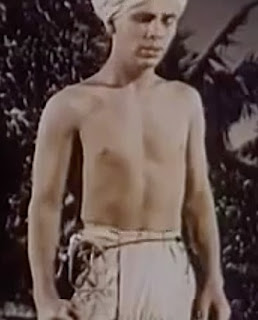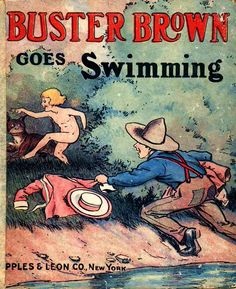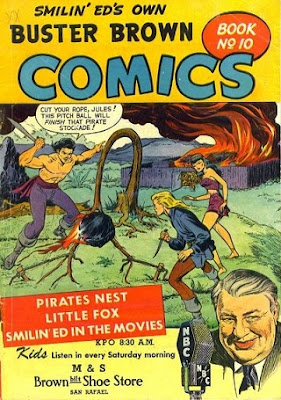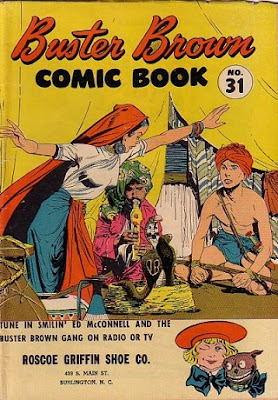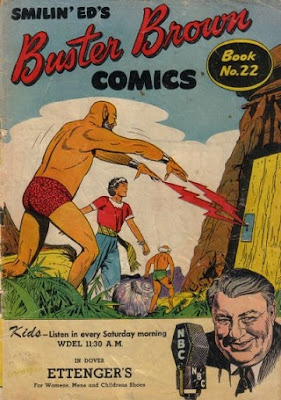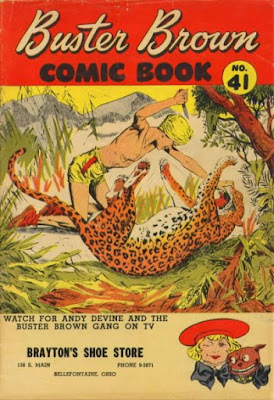The Devil All the Time: "Sinister figures converge on a young man in a rundown postwar town as he tries to save the ones he loves."
Sinister sounds paranormal -- devil, maybe demon possession? And "the ones he loves," not "his wife an dkids" or "the girl of his dreams." Maybe some buddy-bonding.
Scene 1: Establishing shot of the rusty, decrepit town of Knckenmstiff. Really? It's 1957, but everybody dresses and acts like it's the 1930s -- kerosine lamps are more common than electric lights, and no one has heard of television.
Haunted, hollow-eyed Willard (Bill Skarsgard) has a cross in the woods, where he fights "the devil all the time." Today he brings his 9-year old son Arvin along. Uh-oh, I feel the sacrifice of Isaac coming up.
Flashback to another cross, in the Solomon Islands during World War II, where a young Willard comes across an American soldier skinned and bloody but still alive. He puts him out of his misery, and is haunted by the experience forever.
Scene 2: Down in the diner, waitress Sandy flirts with a photographer named Carl (Jason Clarke, left). The narrator tells us that in the future, they will be known as the Bait and the Shooter, and they will call their victims "models."
Flashback to the same diner in 1947. Willard stops in Knockturn Alley on his way home from the War. He sees the waitress bring a sandwich to a homeless guy, and flirts with her.
Scene 3: Young Willard arrives at home. His Mom hugs him and then criticizes him for drinking (he just now got back from the War!)
He announces that he's in love with the waitress. Too bad he never learned her name. (That didn't bother Charlie in Always Sunny in Philadelphia). Mom suggests a girl from church instead, but Willard can't go to church-- too many crosses!
Scene 4: But there he is, in the rural Pentecostal Church, getting fixed up. Mom promised God that if He brought Willard home safe, she would marry him to Helen, who lost her family in a fire.
Geez, everybody has a tragic story!Today there are special guest preachers: Roy (Harry Melling) and Theodore (in a wheelchair because he drank antifreeze to prove his faith. The Bible says that poison won't hurt God's people). They perform "Are You Washed in the Blood of the Lamb"(an old Nazarene standby!).
Then Roy demonstrates that he is filled with the Holy Ghost because he is no longer afraid of spiders by -- you know. I love this movie!
Scene 5: On the way home, Mom asks why Willard didn't pay any attention to that nice girl (If I had a nickel for every time I had that after-church conversation!) The Narrator tells us that Helen married Preacher Roy instead,
Cut to Willard going back to the diner in KnockMyBalls and flirting with the waitress again -- this time he gets her name, Charlotte. A year or two later, they are married, with baby Arbuckle, looking to move into the house from Scene 1. Willard writes a postcard to his Mom about how everything is going great.
Scene 6: Mom and family reading the postcard. A horn honks; Helen who is apparently living with them, hands over her baby, and goes out to meet Preacher Roy and two others. The Narrator tells us that her body will be found buried in the woods.
Cut to a reprise Scene 1, where Willard advises his son Artwand to pray about the bullies pestering him (of course there are bullies -- the devil all the time). They bring the dog Jack along to pray with them (10 to 1 that dog doesn't make it out alive.)
Two hillbillies with guns approach. I didn't get their names, but I hope they are Tommy (Drew Starkey, left) and Tater (Douglas Hodge).
A boy named Tater -- I love this movie. They discuss raping the father and son, but decide against it. (no
Deliverance?)
Scene 7: Armbruster lying on the couch reading comic books while Mom sings and makes a cake (aww, nuclear family bliss) .
Dad drives him to a house with several men outside, and beats up one and suffocates him in the dirt. The Narrator tells us that Aardvark would often look back on that day as the best he ever spent with his father. The devil all the time. I love this movie.
But I'm not going to go through it scene by scene anymore. I'll just list the terrible things that happen to the sweaty folk of KnockedUp. We've already had the crucifixion, the fire that killed Helen's family, the antifreeze, the spiders, the bullies who pester Artwangle, and the bullies that Willard beats up.
7. Mom Charlotte tries to kill herself because she is dying of cancer.
8. Willard crucifies the dog as a sacrifice so God will let Charlotte live.
9. It doesn't work. Charlotte dies.
10. Willard kills himself.
11. Meanwhile, Preacher Roy kills Helen to demonstrate that he can raise the dead. It doesn't work.
12. He hooks up with Bait and the Shooter from Scene 2, now a backwoods Bonnie and Clyde who kill men and then have sex with them. (Jeffrey Dahmer, anyone?) Preacher Roy is their next victim.
AnkleBone goes to live iwth his grandma, Uncle Fester, and Helen and Preacher Roy's daughter Leonora in Coal Country, West Virginia, which is just as rundown and archaic as KnockemSockemRobots. About eight years pass, and it's the Swinging Sixties, but everybody still dress and act like it's the 1930s, and no one has heard of the Beatles.
13. Where the teenage Leonora gets bullied.
14. Which ArmandHammer (grown up into Tom Holland) doesn't cotton to, so he beats up the bullies.
15. Then poor Leonora is raped by Preacher Preston (Robert Pattinson).
16. And gets pregnant. When Preacher Preston refuses to acknowledge that he is the father, Leonora kills herself.
17. ArtGarfunkle kills Preacher Preston.
18. He decides to leave town, and...wouldn't you know it...hitches a ride with the Bait and the Shooter. But he guesses that they plan to kill him and have sex with his body, so he shoots them.
19. AlvinandtheChipmunks goes back to Knockstuffup to tell Sheriff Lee (Sebastian Stan) about the serial killing, but wouldn't you know it, the Sheriff is the Bait's brother, and wants to kill Arvid and frame him.
20. Alkali shoots the Sheriff (but he did not shoot the Deputy).
Whew. The Devil all the time.
But the last scene offers some hope, and a moment of homoromantic buddy-bonding. On the way out of town, Arvid hitches a ride with a friendly hippie (Teddy Cole) -- not haunted, not a snake handler, not a serial killer -- and the two drive off toward the groovy psychedelic paradise of...um, Cincinnati. It is the dawning of the Age of Aquarius....
I love this movie.




























